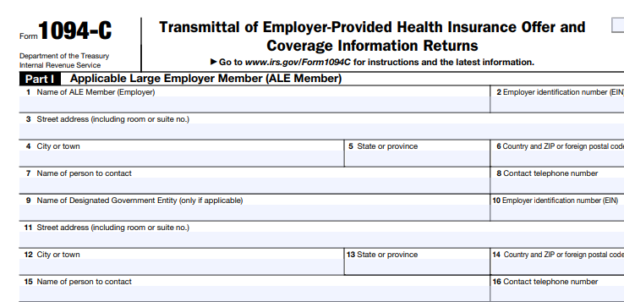 By Bret Busacker and Gabe Hamilton
By Bret Busacker and Gabe Hamilton
To avoid an economic “death spiral” of insurance markets, the U.S. Supreme Court ruled that tax credits are available to individuals in states that have a federal exchange under the Patient Protection and Affordable Care Act (ACA). King v. Burwell, 576 U.S. ___ (2015). In a 6-to-3 decision, the Court relied on context and policy to resolve an ambiguity in the statute, supporting the ACA’s tax credit in states where the health care exchange is established by the federal government.
An Exchange Established by the State-or the Federal Government 
The question before the Court was whether the ACA’s tax credits are available to individuals in states that have a health exchange established by the federal government, or only to those in states where the exchange was established by the state. The ACA provides that individuals are only eligible for premium tax credits under the ACA if the individual obtains insurance through “an Exchange established by the State.” But the Act also provides that if a state fails to set up its own exchange, the federal government will establish “such Exchange.”
The Internal Revenue Service issued a regulation making ACA premium tax credits available regardless of whether the exchange was established and operated by the state or the federal government. The parties challenging that IRS regulation in this case argued that tax credits should not be available in states with a federal exchange as that was not an exchange “established by the State.”
Chief Justice John Roberts, writing for the majority, acknowledged that the challengers’ “plain-meaning” arguments were strong, but concluded that the context and structure of the statutory phrase meant that Congress intended the tax credits to apply to eligible individuals purchasing insurance on any exchange created under the ACA. He wrote that the statute is ambiguous and that plain meaning of a statute is but one means the Court uses to resolve an ambiguity. In this instance, context and structure of the statute were more persuasive.
Roberts noted that Congress passed the ACA to improve health insurance markets, not to destroy them. He cited studies that suggested that if tax credits did not apply to federal exchanges, premiums would increase between 35-47 percent and enrollment would decrease by about 70 percent. He wrote, “It is implausible that Congress meant the Act to operate in this manner.”
Tax Credits Are One of The ACA’s Key Reforms
The Court defined the tax credit scheme as one of the ACA’s three key health insurance reforms. The first key reform is the “guaranteed issue” requirement, which prevents insurance companies from denying health care insurance based on a person’s health, and a “community rating” requirement, which prohibits insurers from charging higher premiums to those in bad health.
The second key reform is the individual insurance mandate, requiring individuals to have health insurance coverage or pay a tax penalty. This reform is designed to get more healthy people into the insurance pool, lowering premiums across the board. Individuals are exempt from this requirement if the cost of buying insurance would exceed eight percent of their income.
The third key reform is providing tax credits to certain individuals in order to make insurance more affordable. People with household incomes between 100 and 400 percent of the federal poverty line are eligible to purchase health insurance on the exchange with tax credits which are provided directly to the insurance provider. The availability of premium tax credits through state and federal exchanges is seen as essential in getting more individuals insured and spreading the risk pool.
Acknowledging that the ACA included many instances of “inartful drafting,” the Court decided that limiting tax credits to state exchanges would gut the second and third key reforms in states with a federal exchange. The combination of no tax credits and an ineffective coverage requirement would result in insurance markets plunging into a “death spiral.” The Court concluded that Congress meant for all of the key reforms to apply in every state, including those with federal exchanges.
Result: No Change for Employers in ACA Requirements
By upholding the tax credit scheme in all states regardless of whether an exchange was set up by the state or the federal government, the Supreme Court supported the overall scheme of the ACA. Although Justice Scalia wrote a scathing dissent that was joined by two other justices, the ACA remains intact. Employers should continue to comply with all applicable ACA requirements.
Click here to print/email/pdf this article.









